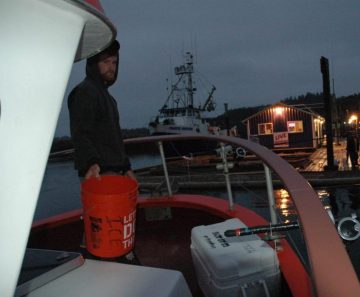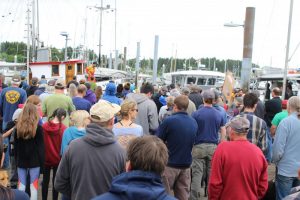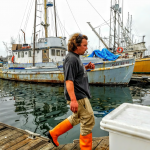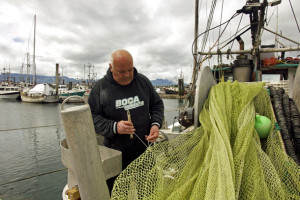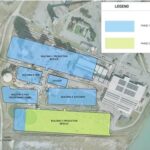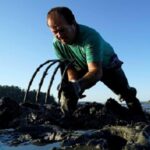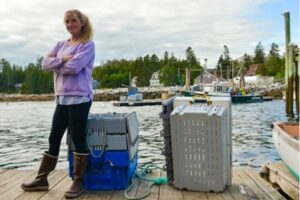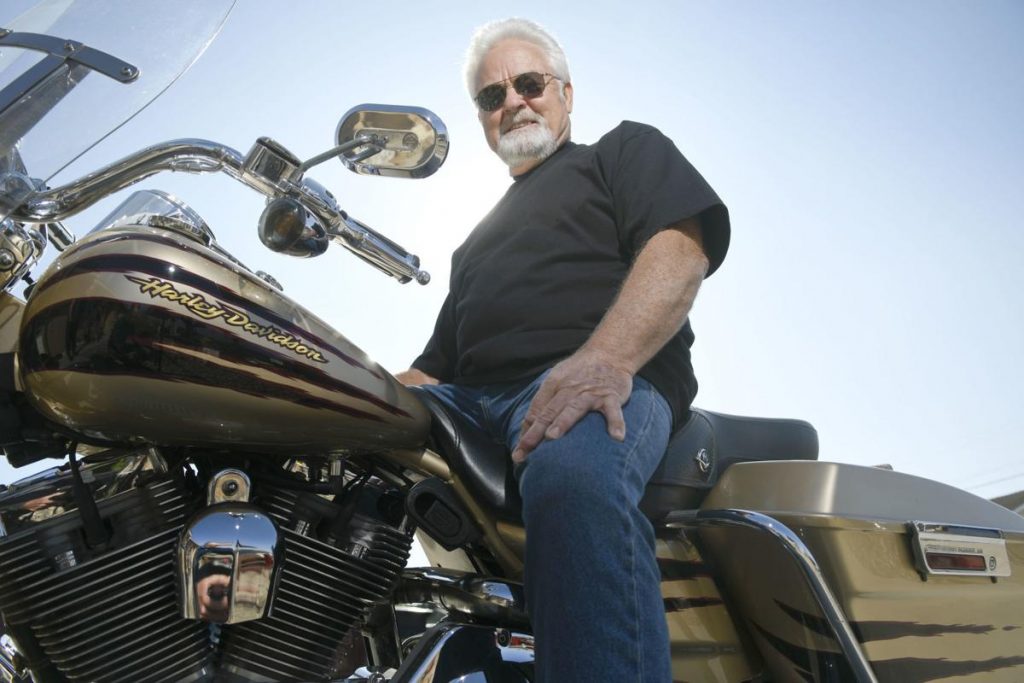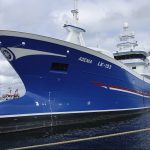Monthly Archives: March 2017
Trade Deals: Maine Lobster industry fears lost sales from ramped-up Canadian exports
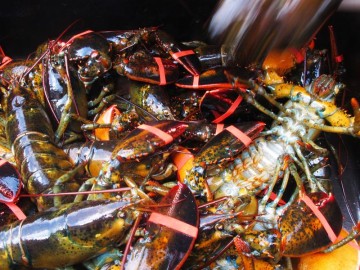 A new trade deal looming between Canada and the European Union is setting off alarm bells in the Maine lobster industry. The deal between Canada and the EU – the largest seafood consumer market in the world – would eliminate tariffs on Canadian lobster exports into Europe and give the Maritimes a competitive advantage over their American counterparts, who would be stuck selling lobsters with tariffs ranging from 8 percent for a live lobster to 20 percent on processed or cooked lobster. A weak Canadian dollar, which is now valued at about 75 percent of a U.S. dollar, will only make Canadian lobster that much more attractive to importers in the 28 member nations of the European Union, which is the second biggest importer of American lobsters, second only to Canada, according to trade data. In 2016, the EU imported $152 million worth of lobsters from the U.S., most of it from Maine. continue reading the story here 08:07
A new trade deal looming between Canada and the European Union is setting off alarm bells in the Maine lobster industry. The deal between Canada and the EU – the largest seafood consumer market in the world – would eliminate tariffs on Canadian lobster exports into Europe and give the Maritimes a competitive advantage over their American counterparts, who would be stuck selling lobsters with tariffs ranging from 8 percent for a live lobster to 20 percent on processed or cooked lobster. A weak Canadian dollar, which is now valued at about 75 percent of a U.S. dollar, will only make Canadian lobster that much more attractive to importers in the 28 member nations of the European Union, which is the second biggest importer of American lobsters, second only to Canada, according to trade data. In 2016, the EU imported $152 million worth of lobsters from the U.S., most of it from Maine. continue reading the story here 08:07
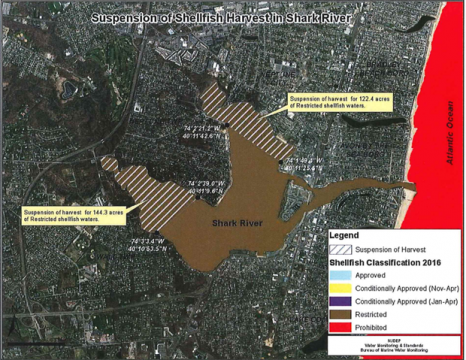
Leaking sewer pipes caused Shore river pollution, state says
State environmental officials say they’ve located and eliminated a major source of pollution of the Shark River, a popular body of water in Monmouth County where shellfish harvesting was suspended late last year because of health dangers there. Engineers and scientists have traced a major source of river pollution to two leaking municipal sewer lines that spilled sewage into a stormwater discharge pipe at West Sylvania Avenue in Neptune City, said state Environmental Protection Commissioner Bob Martin. The city has since repaired those pipes, Martin added. But that doesn’t mean shellfish harvesting in the river will immediately reopen. continue reading the story here 13:03
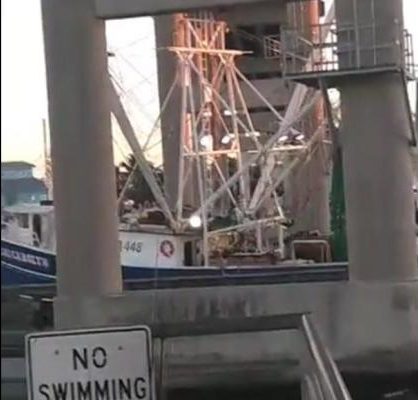
Shrimp boat tangles with a bridge in South Florida
A visitor to a Southwest Florida bridge captured video of a shrimp boat attempting to pass under the structure and temporarily getting stuck. Abraham Arrasola was streaming video on Facebook Live when the shrimp boat attempted to pass under the Matanzas Pass Bridge in Fort Myers. The boat makes contact with the bridge and ends up stuck for a few minutes before it is able to continue on its way. Arrasola said he could see pieces of the bridge falling as the boat worked to free itself. The extent of the damage to the bridge and the boat was unclear. Link 12:33
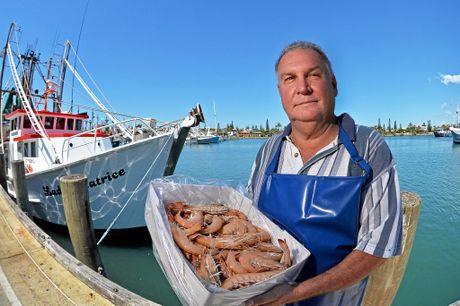
Fishing industry rattled as white spot disease breaks barriers
It was the outbreak they were expecting, but hoping would never come to pass. Concern and uncertainty seem to the prevailing moods amongst the Queensland commercial fishing industry, reeling from this week’s news that white spot disease had broken it’s containment in the Logan River and been detected in Moreton Bay. There’s also considerable frustration amongst members of the Queensland Seafood Industry Association (QSIA), many of whom predicted the outbreak was a matter of ‘when’, not ‘if’. “It definitely hasn’t been a good week for us,” says QSIA’s CEO Eric Perez. “There’s certainly a lot of concern about the impact this will have on the industry here, as well as the knock-on effects this will have on the wider community.” There appears to be no immediate threat to fisheries in the Gympie and Cooloola Cove regions, but tests are ongoing just to determine how far the disease has spread. continue reading the story here 11:16
The elephant on the wharf – ‘Salt-water mafia’ term coined for a reason
 I wish to reply to Russell Wangersky’s March 11th column (“FISH-NL goes cap in hand”) by stating for the record that the characterization of the FFAW as the “salt-water mafia” wasn’t my turn of phrase, but that of inshore harvesters. Indeed, the phrase is so common by the water these days that I’m surprised the salt-water mafia hasn’t challenged harvesters for calling them the FFAW. The way Wangersky sees it, by referring to the salt-water mafia as the FFAW (my apologies, can’t keep it straight), I’m actually “saying that the FFAW is an organized criminal enterprise” that’s been “implicated in everything from drug running to prostitution to murder.” That’s not true. The word “mafia” is defined as a “closed group of people in a particular field (or body of water), having controlling influence,” which, to most harvesters’ line of thinking, sums up the FFAW. Read the Ryan Cleary op-ed here 10:27
I wish to reply to Russell Wangersky’s March 11th column (“FISH-NL goes cap in hand”) by stating for the record that the characterization of the FFAW as the “salt-water mafia” wasn’t my turn of phrase, but that of inshore harvesters. Indeed, the phrase is so common by the water these days that I’m surprised the salt-water mafia hasn’t challenged harvesters for calling them the FFAW. The way Wangersky sees it, by referring to the salt-water mafia as the FFAW (my apologies, can’t keep it straight), I’m actually “saying that the FFAW is an organized criminal enterprise” that’s been “implicated in everything from drug running to prostitution to murder.” That’s not true. The word “mafia” is defined as a “closed group of people in a particular field (or body of water), having controlling influence,” which, to most harvesters’ line of thinking, sums up the FFAW. Read the Ryan Cleary op-ed here 10:27
Estranged daughter sues ‘Deadliest Catch’ star Sig Hansen, alleging she was molested as a child
 The estranged daughter of celebrity Alaskan crab boat captain and cable TV star Sig Hansen claims her father sexually abused her as a toddler, while her parents were divorcing nearly three decades ago, according to interviews and court records. As a result of the alleged abuse, Melissa Eckstrom, now a 28-year-old family law attorney in Seattle, contends in a lawsuit that she battled depression, eating disorders, suicidal thoughts and other trauma throughout her childhood. She also claims that she still harbors memories of her father’s abuse of her as a 2-year-old in 1990. “I have memories … of being in a room alone with my father and crying out in pain,” Eckstrom stated in a court declaration. Read the story here. (I ain’t buying it) 10:06
The estranged daughter of celebrity Alaskan crab boat captain and cable TV star Sig Hansen claims her father sexually abused her as a toddler, while her parents were divorcing nearly three decades ago, according to interviews and court records. As a result of the alleged abuse, Melissa Eckstrom, now a 28-year-old family law attorney in Seattle, contends in a lawsuit that she battled depression, eating disorders, suicidal thoughts and other trauma throughout her childhood. She also claims that she still harbors memories of her father’s abuse of her as a 2-year-old in 1990. “I have memories … of being in a room alone with my father and crying out in pain,” Eckstrom stated in a court declaration. Read the story here. (I ain’t buying it) 10:06
Oregon adopts Columbia River salmon reforms
 Oregon’s Fish and Wildlife Commission took another try Friday at adopting Columbia River salmon management reforms, but it’s still unclear if the policies will satisfy Washington’s commission. In January, the Oregon commission adopted revised reforms which were more friendly to gillnet fishermen. Following a backlash from sportsmen, Oregon Gov. Kate Brown sent the Oregon commission a scolding letter that directed the panel adopt a position closer to the details adopted in 2013 and more akin to Washington’s position. Oregon commission member Greg Wolley of Portland said he got a call from Brown on Thursday. The proposal adopted on Friday meets the spirit of her letter and the compromise Brown wanted, Wolley said. Brad Smith, chairman of the Washington Fish and Wildlife Commission, sent a letter to Michael Finley, his Oregon counterpart, on Wednesday indicating that Washington felt the plan it adopted in January already was a compromise from the original 2012 agreement. “I’m really uncomfortable with this,’’ said Oregon commission member Holly Akenson of Enterprise, who added the plan does not do enough for commercial fishermen. Read the story here 09:09
Oregon’s Fish and Wildlife Commission took another try Friday at adopting Columbia River salmon management reforms, but it’s still unclear if the policies will satisfy Washington’s commission. In January, the Oregon commission adopted revised reforms which were more friendly to gillnet fishermen. Following a backlash from sportsmen, Oregon Gov. Kate Brown sent the Oregon commission a scolding letter that directed the panel adopt a position closer to the details adopted in 2013 and more akin to Washington’s position. Oregon commission member Greg Wolley of Portland said he got a call from Brown on Thursday. The proposal adopted on Friday meets the spirit of her letter and the compromise Brown wanted, Wolley said. Brad Smith, chairman of the Washington Fish and Wildlife Commission, sent a letter to Michael Finley, his Oregon counterpart, on Wednesday indicating that Washington felt the plan it adopted in January already was a compromise from the original 2012 agreement. “I’m really uncomfortable with this,’’ said Oregon commission member Holly Akenson of Enterprise, who added the plan does not do enough for commercial fishermen. Read the story here 09:09
Transport Canada: One year ‘sufficient time’ for fishermen to grasp new Fishing Vessel Safety Regulations
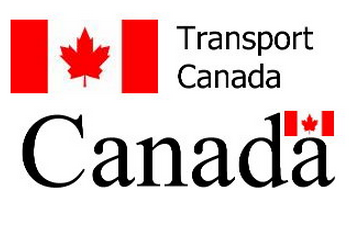 Transport Canada says it is giving fishermen “sufficient time” to prepare for new safety regulations coming into force this summer. The Fishing Vessel Safety Regulations were announced on July 13, 2016, and come into effect July 13, 2017. “This one-year period was to allow owners of fishing vessels sufficient time to familiarize themselves and get up-to-date with the new requirements,” Transport Canada said in an email to CBC P.E.I. The response came after representatives from 15 fishing organizations representing more than 20,000 fish harvesters walked out of a meeting in Halifax on Thursday with Transport Canada. Transport Canada said the objectives of the new regulations are to reduce fatalities, injuries and loss or damage to vessels in the commercial fishing industry. continue reading the story here 08:24
Transport Canada says it is giving fishermen “sufficient time” to prepare for new safety regulations coming into force this summer. The Fishing Vessel Safety Regulations were announced on July 13, 2016, and come into effect July 13, 2017. “This one-year period was to allow owners of fishing vessels sufficient time to familiarize themselves and get up-to-date with the new requirements,” Transport Canada said in an email to CBC P.E.I. The response came after representatives from 15 fishing organizations representing more than 20,000 fish harvesters walked out of a meeting in Halifax on Thursday with Transport Canada. Transport Canada said the objectives of the new regulations are to reduce fatalities, injuries and loss or damage to vessels in the commercial fishing industry. continue reading the story here 08:24
Rhode Island MAGA March!
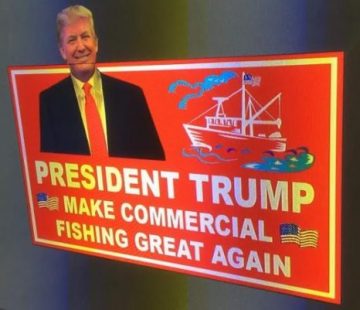 Saturday, March 25, 11:00 – 14:00, at the Rhode Island State House. This is a NATIONAL event. All states will be marching the same day. We will kick off from Providence City Hall at 11 AM and march to the south side of the State House. Please bring signs.. wear your Trump gear and if you still have Trump yard signs bring them along. Speakers include.. John DePetro, Brandon Bell, Leanne Sennick, Joe Trillo and many more. Please SHARE this post. Click here 08:13
Saturday, March 25, 11:00 – 14:00, at the Rhode Island State House. This is a NATIONAL event. All states will be marching the same day. We will kick off from Providence City Hall at 11 AM and march to the south side of the State House. Please bring signs.. wear your Trump gear and if you still have Trump yard signs bring them along. Speakers include.. John DePetro, Brandon Bell, Leanne Sennick, Joe Trillo and many more. Please SHARE this post. Click here 08:13
Fukushima radiation not cause for alarm in US
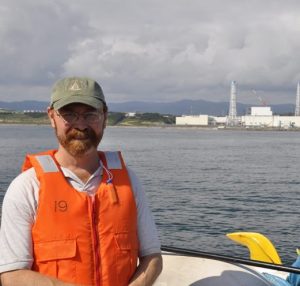 Radiation from the Fukushima nuclear reactor disaster in Japan has reached North American shores, but — despite a number of reports shared on social media— scientists say the levels of radiation are so low that it poses no risk to public health. Late last year, researchers announced that Cesium-134 was discovered in waters off the coast of Oregon and in one sockeye salmon in a British Columbia lake. The news reports have been used as the basis for viral stories about the radiation. One story from alternativemediasyndicate.com carried the headline: “Fukushima Radiation: Your Days of Eating Pacific Ocean Fish Are Over, Or Worse.” Another story from organicandhealthy.org labeled the discovery of the salmon as “bad news for everyone” and described the U.S. West Coast as “contaminated.” Ken Buesseler, a senior scientist at Massachusetts’ Woods Hole Oceanographic Institution, has traveled to Japan numerous times since 2011 to study the Fukushima disaster’s effect on seawater. continue reading the story here 18:19
Radiation from the Fukushima nuclear reactor disaster in Japan has reached North American shores, but — despite a number of reports shared on social media— scientists say the levels of radiation are so low that it poses no risk to public health. Late last year, researchers announced that Cesium-134 was discovered in waters off the coast of Oregon and in one sockeye salmon in a British Columbia lake. The news reports have been used as the basis for viral stories about the radiation. One story from alternativemediasyndicate.com carried the headline: “Fukushima Radiation: Your Days of Eating Pacific Ocean Fish Are Over, Or Worse.” Another story from organicandhealthy.org labeled the discovery of the salmon as “bad news for everyone” and described the U.S. West Coast as “contaminated.” Ken Buesseler, a senior scientist at Massachusetts’ Woods Hole Oceanographic Institution, has traveled to Japan numerous times since 2011 to study the Fukushima disaster’s effect on seawater. continue reading the story here 18:19
Crewmember Sentenced in July Bristol Bay Tender Assault, bannished from the fishing grounds
 Alaska State Troopers reported the conclusion and conviction of a crewmember that assaulted his captain and a fellow crewmember on the F/V Diligence, a tender that was at the time moored in the Egegik Commercial Fishing District last summer. It was July 3rd that troopers responded to the assault complaint. 54-year-old Don Iodice was placed under arrest on the charge. On July 13th, Iodice was arraigned and by October, he entered a change of plea in the case. He was scheduled to be sentenced in the case on December 15th of last year, But, when the date arrived, Iodice didn’t. A $10,000 bench warrant was issued on January 19th, and Iodice was back in court on March 10th and his warrant was quashed. Five days later, Iodice was sentenced to 360 days with 330 suspended in Naknek District Court and placed on probation for two years. In addition, Iodice was ordered to not return to the fishing grounds in Bristol Bay. Link 17:09
Alaska State Troopers reported the conclusion and conviction of a crewmember that assaulted his captain and a fellow crewmember on the F/V Diligence, a tender that was at the time moored in the Egegik Commercial Fishing District last summer. It was July 3rd that troopers responded to the assault complaint. 54-year-old Don Iodice was placed under arrest on the charge. On July 13th, Iodice was arraigned and by October, he entered a change of plea in the case. He was scheduled to be sentenced in the case on December 15th of last year, But, when the date arrived, Iodice didn’t. A $10,000 bench warrant was issued on January 19th, and Iodice was back in court on March 10th and his warrant was quashed. Five days later, Iodice was sentenced to 360 days with 330 suspended in Naknek District Court and placed on probation for two years. In addition, Iodice was ordered to not return to the fishing grounds in Bristol Bay. Link 17:09
Congressman Jones Testifies On Behalf Of North Carolina Shrimpers at the U.S. International Trade Commission
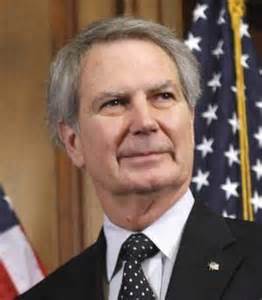 Today at the U.S. International Trade Commission (ITC), Congressman Walter B. Jones (NC-3) testified on behalf of Eastern North Carolina shrimpers in strong support of continuing anti-dumping duty orders against imported warmwater shrimp from Brazil, China, India, Thailand, and Vietnam. The ITC first enacted these orders more than 10 years ago to offset cheating by foreign producers, and to help level the playing field for American shrimpers. ‘Shrimping is an integral part of Eastern North Carolina’s heritage and economy,’ said Congressman Jones. ‘Hard working Eastern North Carolina fishing families have been devastated by unfairly traded foreign shrimp. If these orders aren’t continued, I have no doubt that producers from communist China, Vietnam and elsewhere will start illegally dumping shrimp into our market again. That is unacceptable, and I hope the ITC will stand up for American workers.’ Click here to read the rest 16:29
Today at the U.S. International Trade Commission (ITC), Congressman Walter B. Jones (NC-3) testified on behalf of Eastern North Carolina shrimpers in strong support of continuing anti-dumping duty orders against imported warmwater shrimp from Brazil, China, India, Thailand, and Vietnam. The ITC first enacted these orders more than 10 years ago to offset cheating by foreign producers, and to help level the playing field for American shrimpers. ‘Shrimping is an integral part of Eastern North Carolina’s heritage and economy,’ said Congressman Jones. ‘Hard working Eastern North Carolina fishing families have been devastated by unfairly traded foreign shrimp. If these orders aren’t continued, I have no doubt that producers from communist China, Vietnam and elsewhere will start illegally dumping shrimp into our market again. That is unacceptable, and I hope the ITC will stand up for American workers.’ Click here to read the rest 16:29
U.S. Coast Guard avoids budget cuts
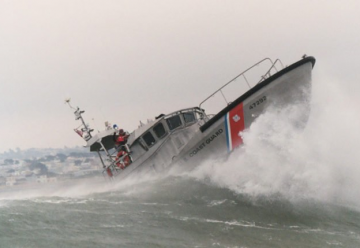 The U.S. Coast Guard will not see the budget cuts the Trump administration planned for the branch after a bipartisan coalition of lawmakers blocked the move. While President Donald Trump continues to push Congress to boost budgets for military branches managed by the Department of Defense, the administration sought to strip $1.3 billion in spending for the Coast Guard. The cut would have been equal to 12 percent of the branch’s budget. The Coast Guard is managed by the Department of Homeland Security. According to Defense News, the service received an “avalanche” of support from lawmakers from both major political parties after a letter signed by 23 senators protested any cuts. Hey! Washington isn’t broken after all! Read the story here 13:22
The U.S. Coast Guard will not see the budget cuts the Trump administration planned for the branch after a bipartisan coalition of lawmakers blocked the move. While President Donald Trump continues to push Congress to boost budgets for military branches managed by the Department of Defense, the administration sought to strip $1.3 billion in spending for the Coast Guard. The cut would have been equal to 12 percent of the branch’s budget. The Coast Guard is managed by the Department of Homeland Security. According to Defense News, the service received an “avalanche” of support from lawmakers from both major political parties after a letter signed by 23 senators protested any cuts. Hey! Washington isn’t broken after all! Read the story here 13:22
Zurik: Snapper barons slam FOX 8 probe, but Trump admin. may think otherwise
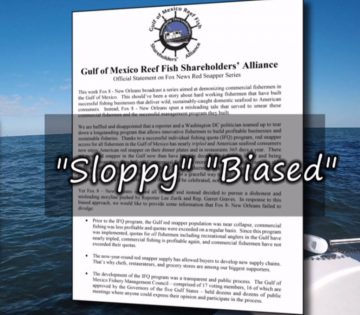 An alliance of fishermen who make millions off a public resource wants us to retract all our stories from our “Hooked Up” series. The series showed how 50 fishermen can make $23 million a year from red snapper, and many never even drop a line in the water. The Gulf of Mexico Reef Fish Shareholders’ Alliance and its executive director, Buddy Guindon, sent us a 23-page letter, calling our stories sloppy and biased. Many of the complaints focus on statements made by subjects we interviewed for our stories. They include 20 separate citations of comments in our series by Congressman Garret Graves of Louisiana.,, Graves says he’s heard from congressmen from all over the country since our five-part series was broadcast. He thinks now is the time to change the system.,,,While the group of 50 fishermen have been unhappy with our reports, we’ve heard from dozens of others with positive comments, like a Florida commercial fisherman who wrote, “Your report hit home with all our concerns in regards to how unfair the small commercial fishermen are being treated and wrongly represented.”Read the story here 12:32
An alliance of fishermen who make millions off a public resource wants us to retract all our stories from our “Hooked Up” series. The series showed how 50 fishermen can make $23 million a year from red snapper, and many never even drop a line in the water. The Gulf of Mexico Reef Fish Shareholders’ Alliance and its executive director, Buddy Guindon, sent us a 23-page letter, calling our stories sloppy and biased. Many of the complaints focus on statements made by subjects we interviewed for our stories. They include 20 separate citations of comments in our series by Congressman Garret Graves of Louisiana.,, Graves says he’s heard from congressmen from all over the country since our five-part series was broadcast. He thinks now is the time to change the system.,,,While the group of 50 fishermen have been unhappy with our reports, we’ve heard from dozens of others with positive comments, like a Florida commercial fisherman who wrote, “Your report hit home with all our concerns in regards to how unfair the small commercial fishermen are being treated and wrongly represented.”Read the story here 12:32
Marine Conservation Society fish stock downgrade branded meaningless by fishermen
The Marine Conservation Society said that two North Sea haddock fisheries are now rated 4 (amber), and the other has dropped from being a “good choice” – rated 2 – to one to eat only occasionally after scientists said stock was at the point where action is now needed to increase the number of fish of breeding age. But fishermen warned that the data did not reflect the picture on the ground. Bertie Armstrong, chief executive of the Scottish Fishermen’s Federation, said: “The fishing industry is well used to these sorts of frankly meaningless publications – it’s not so long ago that we were told that there were only 100 cod left in the North Sea. Try telling that to fishermen today who are seeing huge volumes of large cod on the grounds. Read the story here 11:48
Fisheries Minister Steve Crocker DFO should listen to harvesters seeing different catch rates than DFO scientists
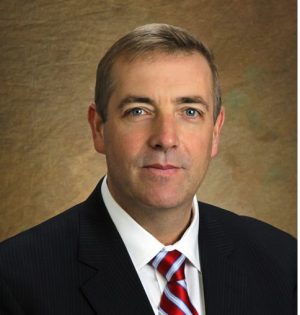 Not all Newfoundland and Labrador fish harvesters are witnessing such a dramatic decline in shellfish stocks, according to provincial Fisheries Minister Steve Crocker, who said the federal government should listen to local fishermen when deciding upcoming quotas. Local fish harvesters are seeing catch rates that don’t match up with the analysis produced by DFO scientists, according to Crocker. That analysis showed major declines in shrimp and snow crab biomass, and hinted at a dire situation for fish harvesters who rely on those stocks to make a living. Crocker said he would be speaking to federal Fisheries Minister Dominic Leblanc this week, and would urge him to listen to local fish harvesters. Read the story here 10:08
Not all Newfoundland and Labrador fish harvesters are witnessing such a dramatic decline in shellfish stocks, according to provincial Fisheries Minister Steve Crocker, who said the federal government should listen to local fishermen when deciding upcoming quotas. Local fish harvesters are seeing catch rates that don’t match up with the analysis produced by DFO scientists, according to Crocker. That analysis showed major declines in shrimp and snow crab biomass, and hinted at a dire situation for fish harvesters who rely on those stocks to make a living. Crocker said he would be speaking to federal Fisheries Minister Dominic Leblanc this week, and would urge him to listen to local fish harvesters. Read the story here 10:08
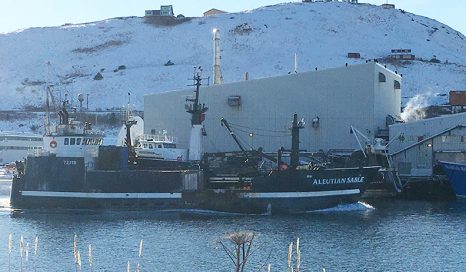
NOAA OLE closes a successful investigation after numerous Observers filed complaints against an Alaskan-based vessel
“This was a large, time consuming investigation involving many violations, victims, and witnesses,” said Kevin Heck, Assistant Special Agent in Charge of OLE’s Alaska Division. NOAA’s Office of Law Enforcement began receiving complaints filed by Observers1 about the Aleutian Sable, owned by Arctic Sablefish, LLC, in 2013. A case file was opened and officers began communicating with one of the vessel’s operators, Jay Hebert, and closely monitoring the vessel for compliance purposes. Complaints and violations continued to pile up through October 2014. Once the investigation was complete, OLE investigators forwarded the case package to NOAA’s Office of General Counsel for prosecution. On March 8, 2016, a Notice of Violation and Assessment of Administrative Penalty (NOVA) was issued to the owner and operator of the F/V Aleutian Sable. The NOVA charged the following eight counts of violations under the Magnuson‐Stevens Act Read the rest here 09:28
Fears for prawn industry grow after white spot found in Moreton Bay
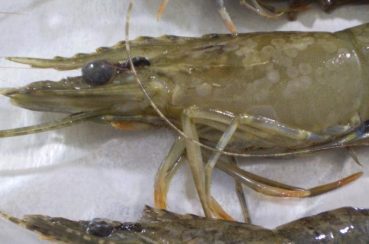 The ban on movement of uncooked prawns and crustaceans outside a new control zone could lead to cheaper seafood for south-east Queenslanders. Uncooked products will not be allowed to leave the area, which includes Brisbane, the Gold Coast and Moreton Bay, but they can be sold within the area. The movement order, effective immediately, includes crabs, prawns, yabbies, Moreton Bay bugs and marine worms. It comes after positive test results on several properties in the Logan River. Agriculture Minister Bill Byrne briefed prawn farmers, commercial fishers and others in the industry on Thursday morning, but some trawlers are still at sea and will need to be spoken to when they return. The prawns were caught within the past week at the Redcliffe Peninsula and Deception Bay, with 31 testing positive. continue reading the story here 21:52
The ban on movement of uncooked prawns and crustaceans outside a new control zone could lead to cheaper seafood for south-east Queenslanders. Uncooked products will not be allowed to leave the area, which includes Brisbane, the Gold Coast and Moreton Bay, but they can be sold within the area. The movement order, effective immediately, includes crabs, prawns, yabbies, Moreton Bay bugs and marine worms. It comes after positive test results on several properties in the Logan River. Agriculture Minister Bill Byrne briefed prawn farmers, commercial fishers and others in the industry on Thursday morning, but some trawlers are still at sea and will need to be spoken to when they return. The prawns were caught within the past week at the Redcliffe Peninsula and Deception Bay, with 31 testing positive. continue reading the story here 21:52
East Naples boat captain accused of smuggling immigrants in Florida Keys
 An East Naples charter boat captain arrested Sunday off the Florida Keys faces human smuggling charges. Federal agents said they found 11 people from three Caribbean countries below deck on his boat. None of the 11 were U.S. citizens, agents said. U.S. Customs and Border Protection air and marine officers said they were on patrol in Tavernier Creek about 3 p.m. Sunday when they came across Richard Karl Mork’s disabled boat and two personal watercraft approaching the boat with two gas cans. Officers boarded the boat about 3:30 p.m. and found 11 passengers, including two unaccompanied minors, below deck, according to a criminal complaint filed by the Homeland Security Department in U.S. District Court for the Southern District of Florida. The vessel, named “Scout,” was found about 2 nautical miles from Tavernier, south of Key Largo. Read the story here 21:15
An East Naples charter boat captain arrested Sunday off the Florida Keys faces human smuggling charges. Federal agents said they found 11 people from three Caribbean countries below deck on his boat. None of the 11 were U.S. citizens, agents said. U.S. Customs and Border Protection air and marine officers said they were on patrol in Tavernier Creek about 3 p.m. Sunday when they came across Richard Karl Mork’s disabled boat and two personal watercraft approaching the boat with two gas cans. Officers boarded the boat about 3:30 p.m. and found 11 passengers, including two unaccompanied minors, below deck, according to a criminal complaint filed by the Homeland Security Department in U.S. District Court for the Southern District of Florida. The vessel, named “Scout,” was found about 2 nautical miles from Tavernier, south of Key Largo. Read the story here 21:15
Man vs. mammal, commercial herring fisherman films sea lion feeding frenzy
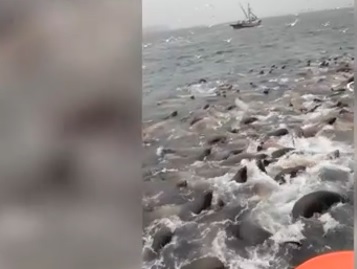 It’s the age old fight over who gets the fish, man or sea lion. For commercial fisherman Allan Marsden, he’s fed up with the burgeoning sea lion population along the B.C. coast impeding his ability to do his job. Roe herring are fished for their eggs and the fishery takes place as the herring gather to spawn. The window is short — late February to early March — for fishermen to make their quota and Marsden says this year they were unable to make their targets. Marsden puts a lot of the onus on the sea lions. “The sea lions keep the herring down so we can’t get at them. They just make it virtually impossible to put the gear in the water sometimes,” Marsden explains. Video, read the story here 19:05
It’s the age old fight over who gets the fish, man or sea lion. For commercial fisherman Allan Marsden, he’s fed up with the burgeoning sea lion population along the B.C. coast impeding his ability to do his job. Roe herring are fished for their eggs and the fishery takes place as the herring gather to spawn. The window is short — late February to early March — for fishermen to make their quota and Marsden says this year they were unable to make their targets. Marsden puts a lot of the onus on the sea lions. “The sea lions keep the herring down so we can’t get at them. They just make it virtually impossible to put the gear in the water sometimes,” Marsden explains. Video, read the story here 19:05

Proposals Aim To Restore Lobsters To Long Island Sound
A new interstate plan is being considered to try and halt the dramatic decline in lobster populations in Long Island Sound and southern New England waters, but experts warn none of these proposals may work in the face of global warming. The draft plan by the Atlantic States Marine Fisheries Commission includes possible changes in the size of lobsters allowed to be kept, reductions in the number of lobster traps allowed in the region, and additional lobster season closures. But a former president of the Connecticut Commercial Lobstermen’s Association, Nick Crismale of Branford, doubts the once-thriving lobster population in the Sound will ever recover. Increasingly warm waters in the Sound may have also resulted in an increase in fish species that prey on lobsters, like black sea bass, making any recovery more difficult, experts say. A number of Connecticut lobstermen believe the population plunge was triggered by the use of certain pesticides to kill mosquitoes carrying the West Nile Virus. Read the story here 15:21
GARFO: At-Sea Monitoring 2017 Coverage Levels for Groundfish Sector Fishery
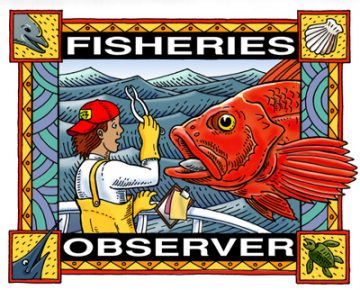 NOAA Fisheries announces that for fishing year 2017 the total target at-sea monitoring coverage level is 16 percent of all groundfish sector trips. This target coverage level is a 2 percentage point increase from the 2016 coverage level (14 percent). As the target coverage level is set based on an average of at-sea monitoring data from the past 3 full groundfish fishing years, this level is set based on data from the 2013-2015 fishing years. Federally funded observer coverage provided by the Northeast Fishery Observer Program to meet the Standardized Bycatch Reporting Methodology (SBRM) requirements will partially satisfy the 16 percent coverage requirement. Sectors will therefore actually pay for at-sea monitoring coverage on less than 16 percent of their groundfish trips, but the total will depend on the SBRM coverage rates, which are not yet out. Read the press release here, For more information, please read the Summary of Analysis Conducted to Determine At-Sea Monitoring Requirements for Multispecies Sectors FY2017 13:59
NOAA Fisheries announces that for fishing year 2017 the total target at-sea monitoring coverage level is 16 percent of all groundfish sector trips. This target coverage level is a 2 percentage point increase from the 2016 coverage level (14 percent). As the target coverage level is set based on an average of at-sea monitoring data from the past 3 full groundfish fishing years, this level is set based on data from the 2013-2015 fishing years. Federally funded observer coverage provided by the Northeast Fishery Observer Program to meet the Standardized Bycatch Reporting Methodology (SBRM) requirements will partially satisfy the 16 percent coverage requirement. Sectors will therefore actually pay for at-sea monitoring coverage on less than 16 percent of their groundfish trips, but the total will depend on the SBRM coverage rates, which are not yet out. Read the press release here, For more information, please read the Summary of Analysis Conducted to Determine At-Sea Monitoring Requirements for Multispecies Sectors FY2017 13:59
‘Codfather’ fraud plea hearing pushed back to end of the month
 The hearing where a New Bedford fishing magnate is expected to plead guilty to federal fraud charges has been pushed back. The U.S. Attorney’s Office had originally announced the hearing for Carlos Rafael would be held on March 16, but Wednesday, the day before that hearing would have been, they announced it was rescheduled for March 30 at 2:30 p.m. Rafael is accused of lying to federal authorities for years about the quantity and species of fish his boats caught in order to evade federal fishing quotas — claiming it was all haddock, instead of other species that have stricter quotas. Video link 12:34
The hearing where a New Bedford fishing magnate is expected to plead guilty to federal fraud charges has been pushed back. The U.S. Attorney’s Office had originally announced the hearing for Carlos Rafael would be held on March 16, but Wednesday, the day before that hearing would have been, they announced it was rescheduled for March 30 at 2:30 p.m. Rafael is accused of lying to federal authorities for years about the quantity and species of fish his boats caught in order to evade federal fishing quotas — claiming it was all haddock, instead of other species that have stricter quotas. Video link 12:34
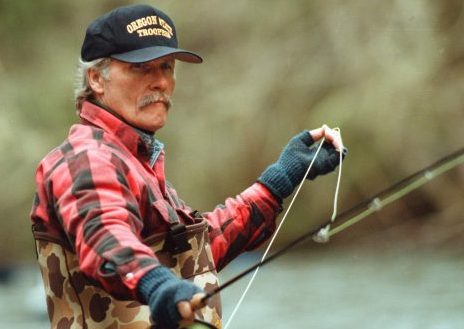
Op-Ed: Kitzhaber salmon policy failed to meet its goals – Ryan Rogers, owner of the Fisherman’s Market
Not all Oregonians are financially or physically able to take time away from work and family to catch their own Columbia River salmon. That’s where I come in: I sell Oregon’s signature fish to my customers, and they love it. My supply of salmon comes from the commercial fishing families who fish the Columbia. Some of them have been doing so for generations. However, their future — and Oregon consumers’ future supply of Columbia River salmon — is now at risk. Some politicians and special interest groups are attacking the Oregon Fish & Wildlife Commission for following fish science and Oregon law and, basically, doing its job. At its January meeting, the commission modified Gov. John Kitzhaber’s 2012 Columbia River plan. The sport-fishing interests are upset. Now, this isn’t a (fish) story about fish decline. And it’s not a story about fish conservation. Read the op-ed here 12:05
White House budget head: Reported Coast Guard cuts ‘not accurate’
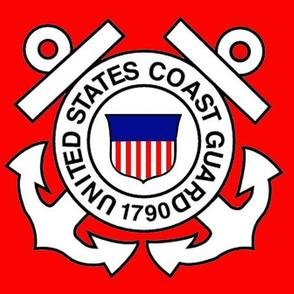 President Trump’s budget director is insisting that a report that $1.3 billion would be cut from the Coast Guard’s budget is inaccurate, although the administration’s first spending outline does not include the data to back up the claim. The budget blueprint released early Thursday details a $54 billion bump in defense spending and a 6.8 percent increase for the Department of Homeland Security, which the Coast Guard falls under. Nowhere in the budget, however, is a mention of Coast Guard spending, which was initially identified by the White House as a way to partially fund an illegal immigration crackdown and border security. Trump’s budget director, Mick Mulvaney, told reporters on Wednesday that the reported cuts are “not accurate.” He pointed to the overall increase for DHS in the outline, and said its secretary, John Kelly, is allowed to allocate the money as he sees fit. Read the story here 11:36
President Trump’s budget director is insisting that a report that $1.3 billion would be cut from the Coast Guard’s budget is inaccurate, although the administration’s first spending outline does not include the data to back up the claim. The budget blueprint released early Thursday details a $54 billion bump in defense spending and a 6.8 percent increase for the Department of Homeland Security, which the Coast Guard falls under. Nowhere in the budget, however, is a mention of Coast Guard spending, which was initially identified by the White House as a way to partially fund an illegal immigration crackdown and border security. Trump’s budget director, Mick Mulvaney, told reporters on Wednesday that the reported cuts are “not accurate.” He pointed to the overall increase for DHS in the outline, and said its secretary, John Kelly, is allowed to allocate the money as he sees fit. Read the story here 11:36
New research at Aberdeen University has highlighted the potential size of the prize awaiting Scots fishers after Brexit
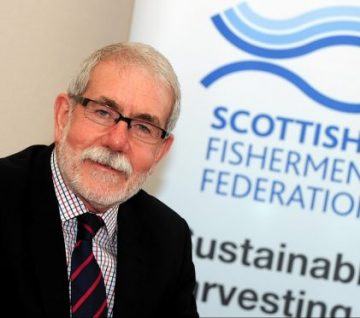 The study looked at 17 commercially key Scottish fish stocks, focusing not on how big they were, but on their distribution. Comparisons were made between the percentages of fish largely contained within the UK’s exclusive economic zone (EEZ), out to 200 nautical miles, and quota allocations. For all but three of the species studied, current UK quotas are significantly below stock levels within the EEZ. And according to Scottish Fishermen’s Federation chief executive , these results strengthen the case for the UK seizing control over its territorial waters after Brexit. “It’s not fair and it’s not right,” Mr Armstrong said at a recent meeting of the North East Scotland Fisheries Development Partnership in Aberdeen. He argued Scottish fishers were at a disadvantage under the current EU arrangements and added: “This is not a land grab or an act of aggression – these are our waters. continue reading the article here 11:00
The study looked at 17 commercially key Scottish fish stocks, focusing not on how big they were, but on their distribution. Comparisons were made between the percentages of fish largely contained within the UK’s exclusive economic zone (EEZ), out to 200 nautical miles, and quota allocations. For all but three of the species studied, current UK quotas are significantly below stock levels within the EEZ. And according to Scottish Fishermen’s Federation chief executive , these results strengthen the case for the UK seizing control over its territorial waters after Brexit. “It’s not fair and it’s not right,” Mr Armstrong said at a recent meeting of the North East Scotland Fisheries Development Partnership in Aberdeen. He argued Scottish fishers were at a disadvantage under the current EU arrangements and added: “This is not a land grab or an act of aggression – these are our waters. continue reading the article here 11:00
INVITATION: RI Seafood Strategy Meeting
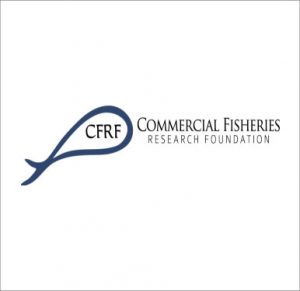 YOU ARE INVITED! RI Food Strategy: Fisheries & Seafood Session Thursday, March 23rd, 2-3PM Commercial Fisheries Research Foundation Commercial Fisheries Center, Building #61B URI East Farm Campus, Kingston, RI This event will provide an opportunity for fisheries/seafood stakeholders to learn about and provide feedback on a draft of the RI Food Strategy. The RI Director of Food Strategy, Sue AnderBois, will present an overview of the Rhode Island Food Strategy, focusing on the fisheries and seafood components. This RI Food Strategy is a five-year action plan that envisions a sustainable, equitable food system that builds upon traditions, strengths, and history while encouraging innovation and supporting the regional goal of 50% of the food eaten in New England be produced in the region by 2060. The Executive Summary (attached) and full draft of the RI Food Strategy are available at: www.relishrhody.com. Please RSVP to Anna Malek Mercer at [email protected]. We look forward to seeing you there! Click here -The Commercial Fisheries Research Foundation www.cfrfoundation.org 10:20
YOU ARE INVITED! RI Food Strategy: Fisheries & Seafood Session Thursday, March 23rd, 2-3PM Commercial Fisheries Research Foundation Commercial Fisheries Center, Building #61B URI East Farm Campus, Kingston, RI This event will provide an opportunity for fisheries/seafood stakeholders to learn about and provide feedback on a draft of the RI Food Strategy. The RI Director of Food Strategy, Sue AnderBois, will present an overview of the Rhode Island Food Strategy, focusing on the fisheries and seafood components. This RI Food Strategy is a five-year action plan that envisions a sustainable, equitable food system that builds upon traditions, strengths, and history while encouraging innovation and supporting the regional goal of 50% of the food eaten in New England be produced in the region by 2060. The Executive Summary (attached) and full draft of the RI Food Strategy are available at: www.relishrhody.com. Please RSVP to Anna Malek Mercer at [email protected]. We look forward to seeing you there! Click here -The Commercial Fisheries Research Foundation www.cfrfoundation.org 10:20
The production value of Newfoundland and Labrador’s seafood industry reached another record high in 2016.
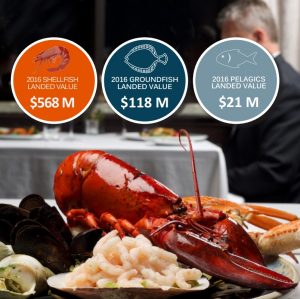 It totalled over $1.4 billion last year, an increase of 8.9 per cent over 2015. Fisheries and Land Resources Minister Steve Crocker announced the release of the 2016 Seafood Industry Year in Review today in the House of Assembly, ahead of his trip to Boston with Premier Dwight Ball for Seafood Expo North America 2017 on Sunday. “We will be accompanying our world-class seafood marketing team and the Newfoundland and Labrador delegation to join the 1,200 companies, and over 21,000 buyers, suppliers, media and other seafood professionals at North America’s largest seafood trade event,” Crocker said. Other highlights of the report include: aquaculture production, employment, value of landings, shellfish, lobster, groundfish, seal hunt, Read the article here, and click here for the full report 08:56
It totalled over $1.4 billion last year, an increase of 8.9 per cent over 2015. Fisheries and Land Resources Minister Steve Crocker announced the release of the 2016 Seafood Industry Year in Review today in the House of Assembly, ahead of his trip to Boston with Premier Dwight Ball for Seafood Expo North America 2017 on Sunday. “We will be accompanying our world-class seafood marketing team and the Newfoundland and Labrador delegation to join the 1,200 companies, and over 21,000 buyers, suppliers, media and other seafood professionals at North America’s largest seafood trade event,” Crocker said. Other highlights of the report include: aquaculture production, employment, value of landings, shellfish, lobster, groundfish, seal hunt, Read the article here, and click here for the full report 08:56






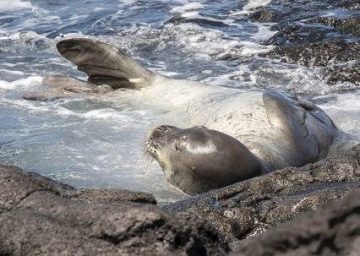 An endangered Hawaiian monk seal has died after wandering into a net pen and becoming trapped at a fish farm that was partially funded by the National Oceanic and Atmospheric Administration in Hawaii. Officials with NOAA said Thursday the death of the 10-year-old monk seal happened at Blue Ocean Mariculture, the same fish farm that NOAA’s National Marine Fishery Service has been using for research in conjunction with a plan to expand aquaculture into federal waters around the Pacific. Ann Garrett, the service’s assistant regional administrator for protected resources, confirmed the farm was the same one used for the NOAA-funded research, but could not comment further on the agency’s involvement. NOAA is working on a plan to expand aquaculture into federals waters despite concerns by some environmental groups who say the industrial-scale farms could do more harm than good to overall fish stocks and ocean health.
An endangered Hawaiian monk seal has died after wandering into a net pen and becoming trapped at a fish farm that was partially funded by the National Oceanic and Atmospheric Administration in Hawaii. Officials with NOAA said Thursday the death of the 10-year-old monk seal happened at Blue Ocean Mariculture, the same fish farm that NOAA’s National Marine Fishery Service has been using for research in conjunction with a plan to expand aquaculture into federal waters around the Pacific. Ann Garrett, the service’s assistant regional administrator for protected resources, confirmed the farm was the same one used for the NOAA-funded research, but could not comment further on the agency’s involvement. NOAA is working on a plan to expand aquaculture into federals waters despite concerns by some environmental groups who say the industrial-scale farms could do more harm than good to overall fish stocks and ocean health. 